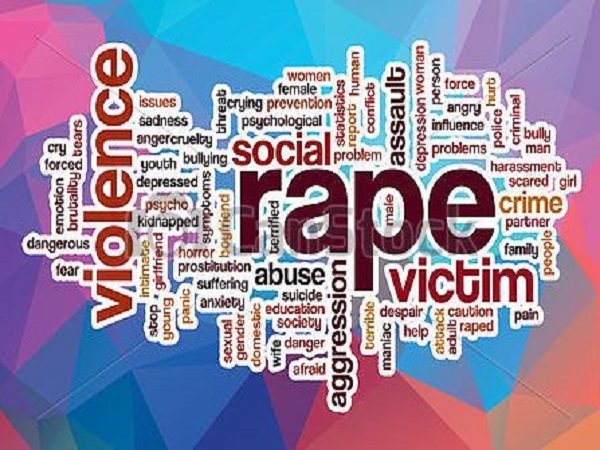The demand for the death penalty to rapists has taken the forefront of our advocacy for rape prevention and persecution - a stance that is starting to obscure the larger intersection of issues that rape includes.
The messages "Hang the Rapist" and "The Rapist is You" stand at different ends of anti-rape activism: the first is strictly legal and shrouded with the assumption of assured deterrence of rapists of all socio-economic backgrounds; the latter calls to attention the social structures that constitute a rape culture while also holding individuals accountable. It is time we stepped into the latter.We know by now that real change requires more than laws on paper. The anti-discrimination laws in our country stand as a testament to both the incompetence of law enforcement and to the inability of the law to enact societal changes. To centralise focus on laws is to render invisible the myriad ways in which the rape culture continues to silence justice in spite of the existence of laws -- reporting remains low and justice even lower.
Regardless of the severity of the punishment, a few rapists will be sentenced, while most will be bailed out or protected through settlements, death threats, fear of shame or incompetent investigation. It is time we break the structures and not just push them away into the shadows of criminalisation.
The failure of rape laws in Nepal especially reflects the many intersecting marginalisation that our discourse on death penalty fails to address. Dalit women continue to be raped at higher rates and have lower access to justice--a reality that requires us to realise and emphasise the intersecting marginalisation of caste, class and gender.
Some 62 per cent of the victims of child marriage under the age of 15 are Dalit girls, 42 per cent of the Dalit community lives under the poverty line, caste-based discrimination and hatred continue to be an issue: all factors that make Dalit women particularly vulnerable.
Caste adds to the challenges that reporting, investigating and persecuting rape already present.
When we centralise the experiences of the 'highcaste', middle-class city girl, we fail to recognise the varying situated conditions that enable rape around Nepal. Unless we embolden the voices of Dalit women, poor women and trans-women, we fail at fighting rape.
The issue of rape is more than the sum of its rapists.
Rape culture is movies and songs that romanticise stalking and sexual harassment; it is narratives that tell women to live in fear because 'men will be men'; it is sanctimonious narratives and a locker-room culture that assign respect to perpetrators of sexual violence.
This rape culture enables lawmakers to make outrageous claims such that "most rape cases are not rape", calling for sexual harassment to be normalised in public and for rapists to face lesser consequences than victims. Recognising the rape culture is not to absolve rapists, but to remind that rape does not occur in a socio-po
We cannot afford to fight the rapists but not the conditions that continue to sanction and even reward rape.
We have the burden of dismantling rape culture's victim blaming in all its forms. Being told to wear more, go out less, don't trust anyone is oppression that wears the facade of protection - an ambiguous territory that necessarily oppresses women regardless of intent. This acceptance of rape as normal and the counter-productive message of "don't be raped" rather than "don't rape", along with mainstream advocacy isolating the image of the 'perfect victim'--covered up, sober, cis woman or child--is part of the problem. The victim does not cause the crime, "Balatkari Ta Hos". The rapist is you.
Each of us is part of the rape culture, it is time we recognise our positions within it and choose whether to support, comply or fight it. To believe, lend support and demand justice forthe victims and to push for better laws and enforcement is part of the work, but there is so much more than each of us needs to do.
Even the law and policy changes we advocate for need to be broader: on one hand, we need to start advocating for victim-oriented reforms, such as better victim protection, availability of rape kits and psychological support to victims; and on the other hand, we must begin to understand that fighting rape includes fighting child marriage, chauppadi, caste discrimination, poverty, transphobia and heteropatriarchy, because each of these structures play a part in the system of oppression that the rape culture constitutes.
We cannot be satisfied with celebrities who post "hang the rapist" while still staring at movies that perpetrate a rape culture. We cannot be satisfied with politicians' pretense of advocacy while they live in mansions built on bail-money. We cannot be satisfied with the age-old trick of evading accountability by changing laws on paper and calling our country progressive while women and marginalised communities around the country continue to suffer.
It's time we hold the whole system accountable.
Even in our personal spheres, it's time we unlearn the normalisation of sexual violence against our bodies. Don't reserve outrage for the most gruesome of cases -- all the catcalling, the incessant sexual harassment on social media or public transport, the blatant objectification of our bodies are part of the problem.
We need to start conversations in which we include women around the country, in the process broadening our understanding of what enables and sanctions rape, emboldening each-other's diverse voices, and fighting for real change. We have the burden of resisting and dismantling deeply rooted systems that precede us but should not be allowed to outlive us. It's time we fight.
Author: MEGHNA ADHIKARI
Source: The Himalayan Times
0 COMMENTS



